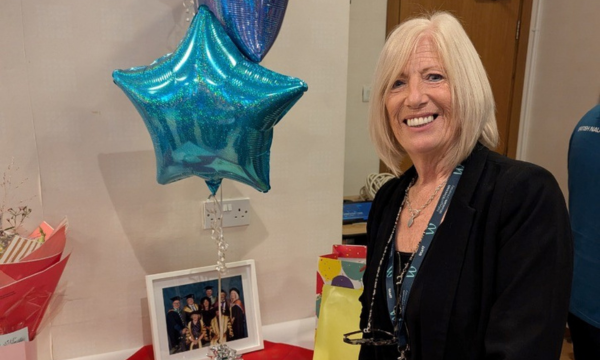An esteemed academic at Wrexham University has been awarded £20,000 of funding to introduce a toolkit, with the aim of addressing inequities in underrepresented Engineering graduates’ employment opportunities.
Professor Anne Nortcliffe, Dean of the Faculty of Arts, Computing and Engineering, has developed the Equity Development Growth Employment (EDGE) toolkit, which she is working towards the roll-out of to all higher education institutions, which offer Engineering programmes.
She has been awarded the funding from the Royal Academy of Engineering, through its Diversity Impact Programme.
The toolkit is a comprehensive set of learning resources designed for academics, employers, and students, which has been devised to:
- Empower both employers and students to navigate employment challenges.
- Educate employers, academics and students on employability; equality, diversity and inclusion (EDI); and allyship.
- Equip individuals to create inclusive workplaces.
- Encourage reflection, growth, and participation in EDI initiatives.
Professor Nortcliffe first created the toolkit and was awarded funding for its development in her previous role at Canterbury Christ Church University as the institution’s founding Head of its School of Engineering, Technology and Design.
However, she has since introduced it to Wrexham University – and with this latest round of funding – is working towards implementing it at other universities across the country.
Speaking about the project, Professor Nortcliffe said:
“I’m pleased to announce that the Royal Academy of Engineering have awarded funding of £20,000 to enable us to further roll-out this project to other institutions.
“It is vitally important work, that will ensure that Engineering graduates from all minority groups are given access to the opportunities and support that they need, in order to progress in the field, following on from graduating from their degree courses.
“The research that’s out there shows that those graduates from minority groups’ chances of successfully gaining employment on graduating is less than that of white males, which emphasises why this toolkit is so necessary.”
Research from the Office for Students in 2024 found that 73 per cent of white males progressed into engineering employment, compared to just 71.6 per cent of females and 68.7 per cent of Asian graduates and 69.8 per cent of black graduates.
While similar disparities were reported for LGBTQ+ and students from low socioeconomic backgrounds.
Professor Nortcliffe said that she wants students from underrepresented backgrounds to celebrate their unique perspectives and the value that they bring to society.
She added:
“I want those graduates from underrepresented groups to celebrate and appreciate their own unique perspectives, authentic experiences and the skills that they bring.
“Their own experiences will help to inform creative engineering and design solutions to problems that they and others encounter daily. Those individuals have their own insights, that are often overlooked but absolutely shouldn’t be. This is why representation in the industry is incredibly important – and that’s what the EDGE toolkit sets out to achieve.”






